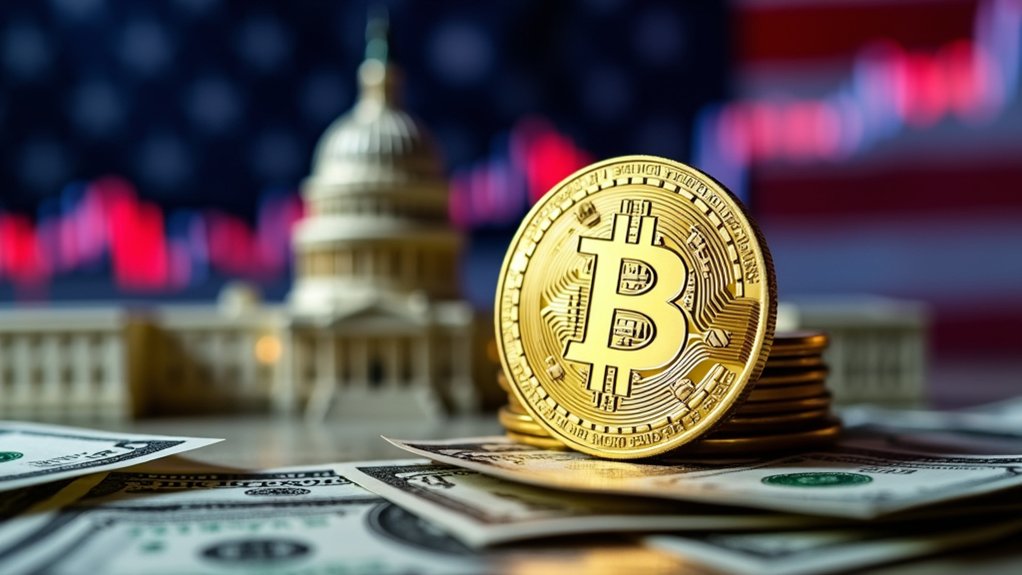The future of America’s financial sovereignty might just be digital. Senator Cynthia Lummis has brought back the BITCOIN Act in March 2025, pushing for a U.S. Strategic Bitcoin Reserve with a jaw-dropping goal: buy up 1 million Bitcoin over five years. That’s not pocket change.
The plan sounds pretty slick on paper. Use Federal Reserve earnings, issue new certificates for gold at market prices, and let the Treasury Secretary handle the details. Budget-neutral. No direct impact on the federal piggy bank.
And once they’ve got the coins, they’ll lock them up for 20 years with limited selling permissions afterward. The bill mandates annual purchases limited to 200,000 BTC to prevent market disruption.
Here’s where things get wild. VanEck, never shy about bullish crypto predictions, claims this reserve could offset $21 trillion in national debt by 2049. That’s 18% of what America will owe by then. How? They’re betting on Bitcoin hitting $42.3 million per coin. Yes, million. With an “M.” Math doesn’t lie, but forecasts sometimes stretch the truth.
Bitcoin at $42.3 million? VanEck’s crystal ball says it’ll erase trillions in national debt—if you believe forecasts that ambitious.
Republicans love it. The bill would cement Trump’s executive order on government Bitcoin holdings. Meanwhile, 18 states aren’t waiting for Uncle Sam, proposing their own Bitcoin reserves worth about $23 billion combined. The limited supply cap of exactly 21 million Bitcoin adds a scarcity factor that drives much of its perceived value as a treasury asset.
Critics aren’t buying it. Bitcoin’s price swings like a pendulum on steroids. One security breach could vaporize billions. And the whole scheme might clash with traditional monetary policy. The government already has seized Bitcoin exceeding 200,000 coins that could jumpstart the reserve. Not everyone’s convinced crypto will still be around in 30 years.
Globally, the stakes are higher. El Salvador already jumped on the Bitcoin bandwagon in 2021. Other nations are watching. If America goes all-in, it could reshape financial power dynamics worldwide.
The trillion-dollar question remains: Can magic internet money really save the U.S. from drowning in debt? Or is this just another crypto pipe dream? The answer might determine whether future generations inherit economic stability or just a bunch of digital tokens nobody wants.





